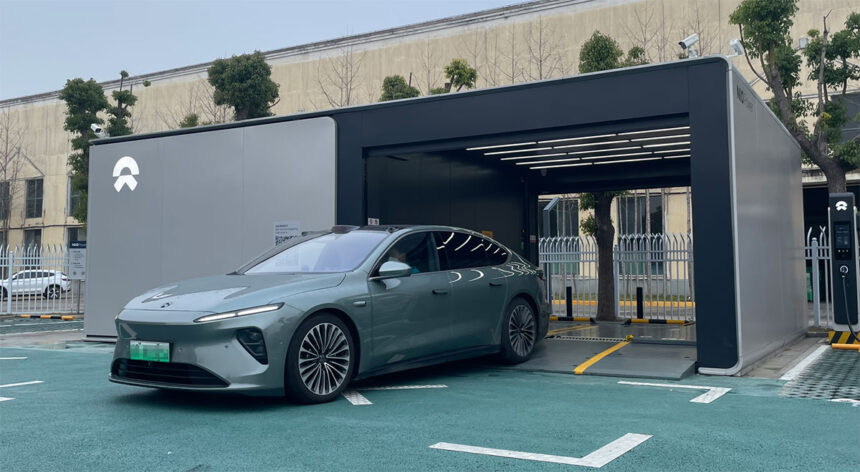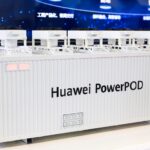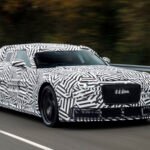A battery swap station can be a profitable venture with just 60 to 70 services a day, according to Nio’s CFO. Nio, a Chinese electric vehicle (EV) maker, currently operates over 150 battery swap stations in Shanghai, with most stations providing more than 100 services daily.
At a recent forum organized by the China Society of Automotive Engineers in Chongqing, Stanly Qu, Nio’s CFO, emphasized the financial viability of the battery swap service. He stated that a battery swap station can break even with 60 to 70 services a day, showcasing the profitability of this business model.
Nio’s latest fourth-generation battery swap station is capable of providing up to 480 services a day, demonstrating the scalability and efficiency of their infrastructure. Qu highlighted Nio’s long-term commitment to sustainable practices, with the construction of battery swap stations serving as a prime example of the company’s dedication to innovation.
Qu debunked misconceptions about Nio’s battery swap service, stating that it is not only a technological innovation but also a business model and sustainability innovation. He emphasized the user value of the service, highlighting the convenience of replenishing energy in just three minutes compared to traditional refueling methods.
From a social perspective, Qu pointed out that battery swap extends the lifespan of batteries and allows unused capacity to interact with the grid, contributing significantly to societal benefits. Nio currently has over 2,600 battery swap stations in China, with plans for further expansion in Europe.
During Nio’s recent earnings call, management revealed that a swap station could break even with 60 services per day, aligning with Qu’s statements. The company’s continued investment in research and development, totaling over $50 billion in the past decade, underscores Nio’s commitment to technological advancement and innovation.
Nio’s in-house R&D efforts have resulted in 12 full-stack technologies, including the Shenji NX9031 smart driving chip and SkyOS vehicle operating system. Qu highlighted the successful development of the Shenji NX9031 chip, set to be used in the production vehicle ET9 next year.
As Nio prepares to announce its third-quarter financial results and celebrate its 10th anniversary, the company remains at the forefront of EV innovation and sustainability initiatives. With a dedicated team of 11,000 engineers and a strong patent portfolio, Nio continues to lead the way in the EV industry.







